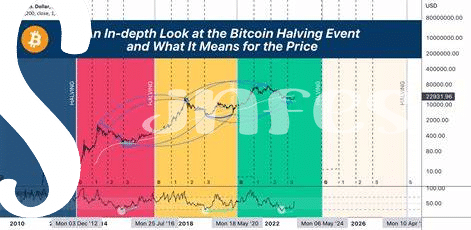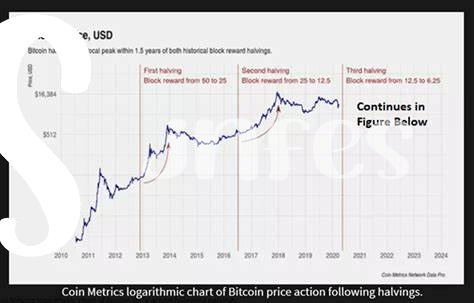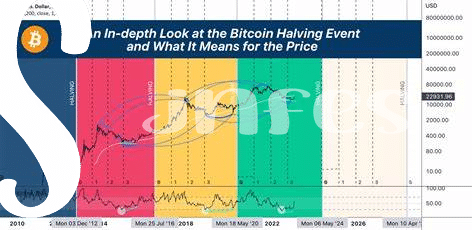🌍 Navigating the Seas of Global Economic Shifts

When we talk about the world’s economy, imagine it like sailing on a big, unpredictable ocean. Sometimes, the waters are calm, and everything looks sunny. But other times, big waves and storms can come out of nowhere, shaking everything up. Just like ships need to navigate these changes carefully, the whole world of money and how people use it, including Bitcoin, gets affected by these big shakes and moves. It’s kind of like when a crazy storm hits, and it can affect the price of Bitcoin, making it go up or down, depending on how people are feeling about the future.
| Event | Impact on Bitcoin |
|---|---|
| Economic Growth | 📈 Potentially increases Bitcoin’s value |
| Economic Downturn | 📉 Can cause Bitcoin’s value to drop |
| Inflation | 🔥 Might drive people to Bitcoin as a safe haven |
| Global Instability | 💥 Can lead to a surge in Bitcoin interest |
Just like sailors have to keep an eye on the weather, people interested in Bitcoin need to watch these global economic changes closely. These changes can be anything – from how much things cost to whether businesses are doing well or bad, and even what governments around the world decide to do about money. All these things are pieces of a big puzzle that, when put together, help us see where Bitcoin might be heading next.
💸 Impact of Interest Rates on Bitcoin’s Value
When it comes to Bitcoin, think of interest rates as a big game of seesaw that impacts your pocket. As central banks around the world tweak these rates, essentially deciding how expensive it is to borrow money, they indirectly nudge investors towards or away from different types of investments. For Bitcoin, this is crucial. When rates are low, borrowing is cheaper, encouraging people to invest in riskier assets like Bitcoin, hoping for a higher return compared to, say, a savings account that isn’t growing much. This can drive Bitcoin’s price up, as more people are willing to buy into the digital currency.
However, when rates rise, the reverse happens. Borrowing money becomes more expensive, encouraging people to save rather than spend. This includes pulling back from riskier investments like Bitcoin, which can lead to a decrease in its price. Essentially, while Bitcoin prances in its digital realm, it’s still tethered to the traditional financial system through these invisible threads of interest rates. For an in-depth exploration of how evolving digital safety measures are influencing Bitcoin, particularly in context to decentralized storage solutions, consider this informative piece: https://wikicrypto.news/decoding-satoshi-the-pseudonymous-father-of-bitcoin.
📊 Stock Market Vibes and Bitcoin Connections

Imagine the stock market as a big, lively party where companies show off and investors choose who to dance with. Now, what if I told you that Bitcoin, the digital currency known for its rollercoaster ride in value, has developed a surprisingly close dance routine with the stock market’s moves? It’s true! When the stock market is happy and soaring, more people feel confident about taking risks. This often means they’re more likely to invest in Bitcoin, pushing its value up. Conversely, when the stock market seems to be having a bad day, dropping in value because of economic worries or bad news, people often get cautious. They might pull their money out of riskier investments like Bitcoin, which can lead to a drop in its value. This somewhat unexpected connection tells us that Bitcoin isn’t as detached from the traditional financial world as some might think. In fact, global economic moods and events can sway Bitcoin’s value, much like they influence the stock market. Keeping an eye on this dynamic can give us insights into how economic trends worldwide are shaping the future of digital currencies and their place in our financial system.
🛢️ Oil Prices Dance: Bitcoin’s Unexpected Partner

When we think of oil, our minds often jump to cars and industries, not digital currencies like Bitcoin. Yet, believe it or not, the price of oil has a fascinating dance with the value of Bitcoin. This might sound odd at first, but it makes sense when you consider how global economies are interconnected. Higher oil prices can lead to inflation, which reduces the purchasing power of traditional money. This scenario often leads people to seek alternative places to store their wealth, and Bitcoin, with its decentralized nature, becomes an attractive option. As more people turn to Bitcoin, its demand, and consequently its value, can rise. It’s like a ripple effect from one big pond to another.
On the flip side, when oil prices drop, it can have the opposite impact. Economies can stabilize or grow, making traditional investments more appealing. But it’s not just about the highs and lows; it’s about the signals these changes send to investors. Bitcoin, in its digital essence, offers a modern solution to age-old economic challenges. For those looking to navigate these waters, understanding how to protect and grow their digital investments is key. A great place to start is by learning how to store bitcoin safely in 2024, offering peace of mind as you explore the evolving landscape of digital currency influenced by the dance of oil prices.
🏦 Government Policies: Friend or Foe to Bitcoin?
When we look at how governments treat Bitcoin, it’s a bit like watching a soccer game where the ball is public opinion, and each player’s strategy can change the game’s outcome. Some countries roll out the welcome mat, introducing friendly rules that make it easier for people to buy, sell, and use Bitcoin. They see it as a chance to boost innovation, attract tech wizards, and maybe even get a slice of a very lucrative pie. On the other hand, you have countries that are more cautious, maybe even a bit scared. They tighten the rules, worrying that if Bitcoin becomes too big, it might upset the traditional money systems they have in place. This tug-of-war between embracing Bitcoin and keeping it at arm’s length makes its value jump and dive, like a boat on choppy waters. So, whether Bitcoin is seen as a friend or foe by governments can really depend on the day, the country, and how much they want to embrace the future.
| Country | Policy Stance | Impact on Bitcoin |
|---|---|---|
| Japan | Friendly | Positive |
| China | Cautious | Negative |
| USA | Mixed | Varied |
🌐 Tech Innovations Steer Bitcoin’s Future Course

In the bustling world of digital currency, where each click can mean a new horizon, innovations in technology often serve as the wind beneath Bitcoin’s wings. Imagine a bustling marketplace, where instead of stalls, there are lines of code, and instead of shouting vendors, we’ve got developers typing away, creating the next big thing. This marketplace is ever-evolving, with advancements such as faster transaction speeds and improved security measures. These aren’t just upgrades; they’re the very currents propelling Bitcoin forward, making it more accessible and appealing to a broader audience.
Amid this digital revolution, it’s crucial to understand the bedrock upon which Bitcoin stands, and for that, one must start at the beginning. For those curious about the genesis of this digital currency, a deeper dive into its origins is essential. To peel back the layers, consider exploring what is bitcoin mining in 2024. This exploration isn’t just about understanding how Bitcoin transactions work but grasping the innovation’s heartbeat that keeps Bitcoin so resilient in the face of global economic tides. As technology marches on, its embrace by Bitcoin might very well dictate the currency’s future stability and relevance.
